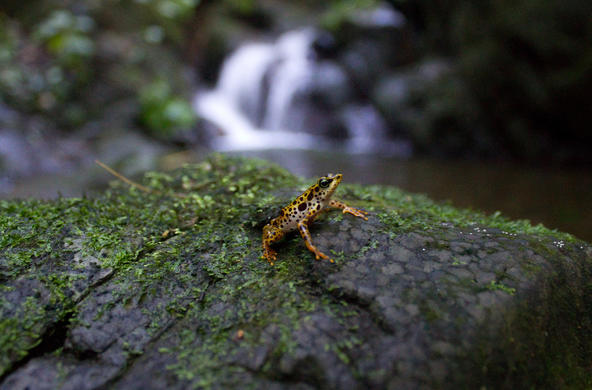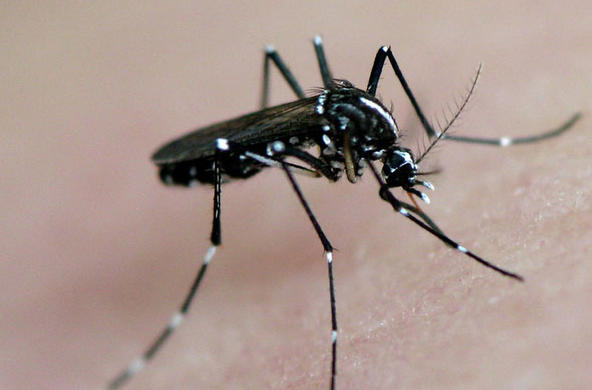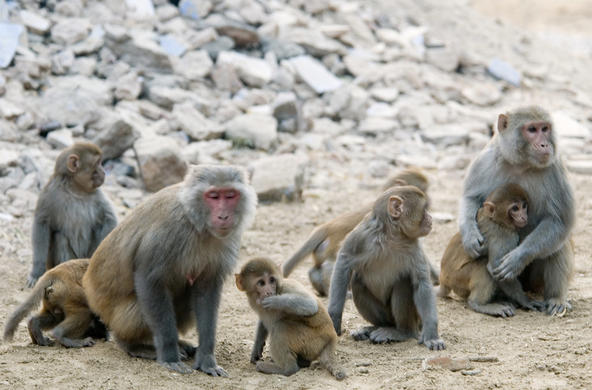The joy in seeing the first flowers of spring is always countered by dismay over the reappearance of mosquitoes. Few things are more irritating than the buzzing drone of these tiny flying needles in search of blood. They seem to arrive in droves — as if awakened from a long, hungry winter of rest.
Even as a scientist, I have little to offer in defense of the mosquito. No charismatic bird, bat, or amphibian is known to survive on mosquitoes alone, although their importance in the food chain is certain.
Mosquitoes don't filter water or process plant litter. They really are just nasty little blood suckers. However, all of human history has failed to drive even one mosquito species to extinction. So we should probably learn to accept life with mosquitoes and do what we can to minimize their impact.
For such a tiny organism, the mosquito has a pretty complex and demanding life history that effectively links land and water ecosystems. Female mosquitoes only feed on blood when they are ready to make eggs. Males survive on plant nectar. Early life stages (larval) are entirely aquatic, but the larvae still need oxygen from the air to survive.
In New York alone, we have roughly 60 different species of mosquitoes (there are an estimated 2,500 species worldwide). Luckily for us, only a handful actually feed on human blood, as opposed to the blood of organisms such as birds and frogs.
Still, mosquitoes have arguably been one of the most persistent and influential players in human mortality across the world. Colonization, wars and development have all been limited and shaped by disease risk and effects related to mosquitoes.
Mosquito-borne diseases are estimated to kill more than 3 million people every year, primarily in tropical and third-world countries. Roughly one million people a year die from malaria alone. West Nile virus has sickened thousands and killed hundreds of people in the United States since it was first documented in New York in 1999.
Malaria and dengue fever, the leading causes of mosquito-related mortality in humans, are transmitted between humans by a mosquito. Both diseases can be effectively controlled and even locally eradicated by minimizing contact between mosquitoes and infected humans. West Nile virus, on the other hand, is built up in the environment through a bird-mosquito-bird cycle. A mosquito bites an infected bird, the virus replicates inside the mosquito, and then is transmitted when the mosquito bites a second bird, where the virus will replicate in the bird's blood.
Humans can be infected by a mosquito carrying the virus, but even if we get sick, our blood will never contain enough of the virus to infect another mosquito.
Thus, controlling human behavior and mosquito exposure is not sufficient to eradicate West Nile, because the pathogen can persist in the bird-mosquito cycle and reappear in humans whenever mosquitoes have the opportunity to feed sequentially on birds and then humans.
Luckily, nature does exercise some control on mosquito populations. In a functioning ecosystem, mosquitoes have very high mortality rates. Population abundance is limited when larvae compete with each other and similar organisms for food resources.
Similarly, predators can be efficient controls on population size in both aquatic and terrestrial life stages. Air and water temperatures control mosquito populations by influencing the timing and success of egg hatches in the spring, as well as the rate of larval development and overall survival rates. Cold winter temperatures limit overwinter survival of dormant eggs and adults, effectively regulating the numbers of last year's mosquitoes that become this year's pests.
All of nature's regulations on mosquito populations can be quickly overridden by human landscape modification.
Isolated and temporary water sources in littered containers, yard planters and other man-made basins are great places for mosquitoes to breed and are unlikely to support any of their predators, which often require much more permanent water sources.
Even if I cannot pinpoint a specific value of the mosquito to the functioning of ecosystems, I am certain a functioning ecosystem — one with a diversity of competitors and predators of mosquitoes — is the most effective way to control this particular beast.






